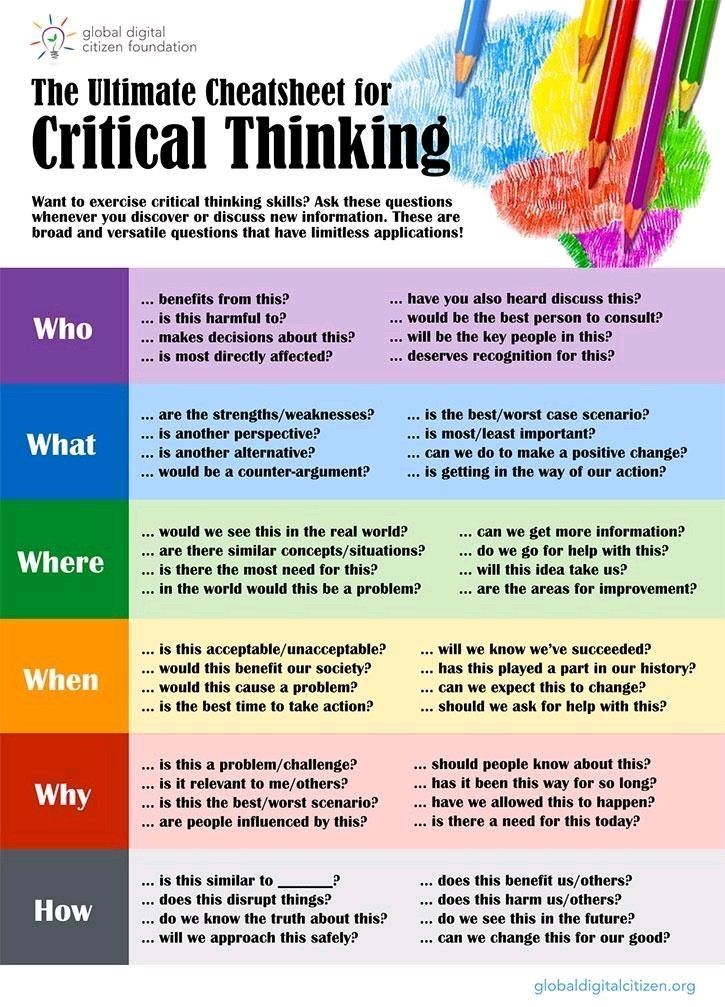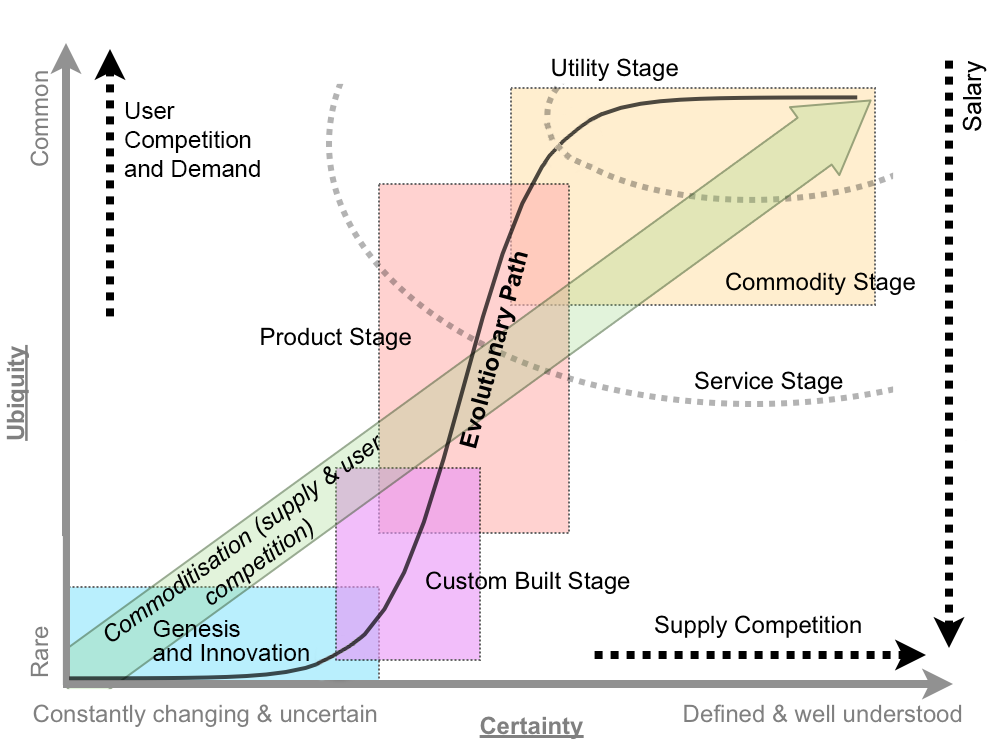





3Dprinting (178) A.I. (833) animation (348) blender (206) colour (233) commercials (52) composition (152) cool (361) design (646) Featured (79) hardware (311) IOS (109) jokes (138) lighting (288) modeling (144) music (186) photogrammetry (189) photography (754) production (1287) python (91) quotes (496) reference (314) software (1350) trailers (305) ves (549) VR (221)
Category: quotes
-
If – Rudyard Kipling
If you can keep your head when all about you
Are losing theirs and blaming it on you,
If you can trust yourself when all men doubt you,
But make allowance for their doubting too;
If you can wait and not be tired by waiting,
Or being lied about, don’t deal in lies,
Or being hated, don’t give way to hating,
And yet don’t look too good, nor talk too wise:If you can dream—and not make dreams your master;
If you can think—and not make thoughts your aim;
If you can meet with Triumph and Disaster
And treat those two impostors just the same;
If you can bear to hear the truth you’ve spoken
Twisted by knaves to make a trap for fools,
Or watch the things you gave your life to, broken,
And stoop and build ’em up with worn-out tools:If you can make one heap of all your winnings
And risk it on one turn of pitch-and-toss,
And lose, and start again at your beginnings
And never breathe a word about your loss;
If you can force your heart and nerve and sinew
To serve your turn long after they are gone,
And so hold on when there is nothing in you
Except the Will which says to them: ‘Hold on!’If you can talk with crowds and keep your virtue,
Or walk with Kings—nor lose the common touch,
If neither foes nor loving friends can hurt you,
If all men count with you, but none too much;
If you can fill the unforgiving minute
With sixty seconds’ worth of distance run,
Yours is the Earth and everything that’s in it,
And—which is more—you’ll be a man, my son -
Schofield’s Laws of Computing
https://www.freecodecamp.org/news/schofields-laws-of-computing/
“Never put data into a program unless you can see exactly how to get it out.” ― Jack Schofield (2003)
“Data doesn’t really exist unless you have at least two copies of it.” ― Jack Schofield (2008)
“The easier it is for you to access your data, the easier it is for someone else to access your data.” ― Jack Schofield (2008)
-
Your Career in Animation: How to Survive and Thrive – book by Veteran animation director and author David B. Levy
www.awn.com/animationworld/your-career-animation-how-survive-and-thrive-now-available
“The new edition of his book is filled with insight and advice from over 150 animation industry professionals, a wide-ranging tome of suggestions, reality checks, and inspiration on how to set your sights and blaze your own career trail. He shares practical tips on building a reel, portfolio, and resume; pitching and selling shows; and taking to heart and learning from on-the-job criticism.”
“Everyone seems to agree, and I certainly do, and it’s my POV in the book, that self-development is everything. You shouldn’t wait for anyone to make you anything, to give you opportunities you haven’t earned yet.”
-
The important thing in science
“The important thing in science is not so much to obtain new facts as to discover new ways of thinking about it”
William Lawrence Bragg -
A Valuable Lesson About Storytelling From Hayao Miyazaki
www.cartoonbrew.com/animators/hayao-miyazaki-explains-develop-idea-film-147319.html
” The Idea—the Origin of Everything
Is the starting point of an animated film the time when the project is given the go-ahead and production begins? Is it at that point that you, as the animator, first go over your ideas for that story? No, that isn’t the starting point. Everything begins much earlier, perhaps before you even think of becoming an animator. The stories and original works—even initial project planning—are only triggers.
Inspired by that trigger, what rushes forth from inside you is the world you have already drawn inside yourself, the many landscapes you have stored up, the thoughts and feelings that seek expression.
When people speak of a beautiful sunset, do they hurriedly riffle through a book of photographs of sunsets or go in search of a sunset? No, you speak about the sunset by drawing on the many sunsets stored inside you—feelings deeply etched in the folds of your consciousness of the sunset you saw while carried on your mother’s back so long ago that the memory is nearly a dream; or the sunset-washed landscape you saw when, for the first time in your life, you were enchanted by the scene around you; or the sunsets you witnessed that were wrapped in loneliness, anguish, or warmth.
You who want to become animators already have a lot of material for the stories you want to tell, the feelings you want to express, and the imaginary worlds you want to bring alive. At times these may be borrowed from a dream someone related, a fantasy, or an embarrassingly self-involved interior life. But everyone moves forward from this stage. In order for it not to remain merely egotistical, when you tell others about your dream you must turn it into a world unto itself. As you go through the process of sharpening your powers of imagination and technique, the material takes shape. If that shape is amorphous, you can start with a vague yearning. It all begins with having something that you want to express.
Say a project has been decided on and you have been inspired by something. A certain sentiment, a slight sliver of emotion – whatever it is, it must be something you feel drawn to and that you want to depict. It cannot solely be something that others might find amusing, it must be something that you yourself would like to see. It is fine if, at times, the original starting point of a full-length feature film is the image of a girl tilting her head to the side.
From within the confusion of your mind, you start to capture the hazy figure of what you want to express. And then you start to draw. It doesn’t matter if the story isn’t yet complete. The story will follow. Later still the characters take shape. You draw a picture that establishes the underlying tone for a specific world. Of course, what you have drawn will not be your final product. At times, your work may be rejected entirely. When I mentioned earlier that you must have the will to go to any length, this is what I meant. When you draw that first picture, it is only the beginning of an immense journey. This is the start of the preparation stage of the film.
What kind of world, serious or comedic; what degree of distortion; what setting; what climate; what content; what period; whether there is one sun or three; what kinds of characters will appear; what is the main theme…? The answers to all of these questions gradually become clearer as you continue to draw. Don’t just follow a ready-made story. Rather, consider a possible development in the story, or whether a particular kind of character can be added. Make the tree trunk thicker, spread its branches further – or go to the tips of the small branches (this could be the starting point of the idea), and on to the leaves beyond as the branches grow and grow.
Draw many pictures, as many as you can. Eventually a world is created. To create one world means to discard other inconsistent or clashing worlds. If something is very important to you, you can keep it carefully stored in your heart for use at another time. Those who have experienced an outpouring of an amazing number of pictures from inside themselves can feel it. They feel that the fragment of a picture they envisioned, the other trunk of a story that was thrown out while piecing together a narrative, the memory of pining for a girl, the knowledge about a subject gained as they delved deeply into a hobby – all of these play a role and become entwined into one thick strand. The scattered material within you has found its direction and started to flow.

-
How are Energy and Matter the Same?
www.turnerpublishing.com/blog/detail/everything-is-energy-everything-is-one-everything-is-possible/
www.universetoday.com/116615/how-are-energy-and-matter-the-same/
As Einstein showed us, light and matter and just aspects of the same thing. Matter is just frozen light. And light is matter on the move. Albert Einstein’s most famous equation says that energy and matter are two sides of the same coin. How does one become the other?
Relativity requires that the faster an object moves, the more mass it appears to have. This means that somehow part of the energy of the car’s motion appears to transform into mass. Hence the origin of Einstein’s equation. How does that happen? We don’t really know. We only know that it does.
Matter is 99.999999999999 percent empty space. Not only do the atom and solid matter consist mainly of empty space, it is the same in outer space
The quantum theory researchers discovered the answer: Not only do particles consist of energy, but so does the space between. This is the so-called zero-point energy. Therefore it is true: Everything consists of energy.
Energy is the basis of material reality. Every type of particle is conceived of as a quantum vibration in a field: Electrons are vibrations in electron fields, protons vibrate in a proton field, and so on. Everything is energy, and everything is connected to everything else through fields.
-
The speed of darkness (and ignorance)
The Dunning-Kruger effect
www.pixelsham.com/2014/10/18/the-dunning-kruger-peak/ -
14 Signs Of An Adaptable Person
www.forbes.com/sites/jeffboss/2015/09/03/14-signs-of-an-adaptable-person/#46bd90e016ea
1. Adaptable people experiment.
2. Adaptable people see opportunity where others see failure.
3. Adaptable people are resourceful.
4. Adaptable people think ahead.
5. Adaptable people don’t whine.
6. Adaptable people talk to themselves.
7. Adaptable people don’t blame.
8. Adaptable people don’t claim fame.
9. Adaptable people are curious.
10. Adaptable people adapt.
11. Adaptable people stay current.
12. Adaptable people see systems.
13. Adaptable people open their minds.
14. Adaptable people know what they stand for.
-
Ennio Morricone RIP
https://www.hollywoodreporter.com/news/ennio-morricone-dead-prolific-italian-composer-was-91-858358
-
Is stress good or bad? It’s actually both…
www.bbc.com/worklife/article/20191212-is-stress-good-or-bad-its-both
Can stress really help you do better and if so, how much is the right amount?
Ultimately stress is a way for your body and mind to communicate impending needs or events which require attention. Once you have recognized and acknowledged the message, there should not be any need to… stress over it.“…having some stress helps my decision-making, because it helps to maintain a focus on the situation,”
“…Too much stress causes what we call cognitive overload and then impairs your ability to make decisions because you’ve lost that situational awareness,”
“…stress is really importantly implicated in performance and in health,” “It’s very helpful for legitimate emergencies, and to achieve peak achievement in high-performance events.”
“…in physiological terms, (stress) arousal might take the form of an increased heart rate, redirected blood flow to the brain and large muscle groups, and release of glucose to act as fuel. The body’s resources are reallocated to be most useful for an emergency, from greater mental alertness to higher muscle tension. The brain and body are essentially bracing themselves.”
“While the Yerkes-Dodson principle appears to resonate with many, there has been plenty of criticism of it too. Detractors suggest it is applied too broadly. For instance, some people may be galvanised by pressure because they’re “defensive pessimists” who perform better when they worry a bit. Others find positive reinforcement more motivating. Sleep deprivation might harm speed, but not accuracy (so a sprinter shouldn’t stay out late every night). Noise might hurt accuracy, but not speed (so a reporter should try to find a quiet space).”
“…any stress can cause (extreme) harm when it’s prolonged. To take just one example, a chronically high heart rate is linked to cardiovascular risk.”
“One key factor is to avoid, where possible, the tipping point when stress leads to burnout. Burnout, with its physical and mental harms, is especially likely when stress is chronic. ”
“Another factor is the presence of control. For those who feel powerless over their situation, stress is unlikely to be beneficial.”
“Studies show that acute, uncontrollable stress limits the functions managed by the prefrontal cortex, which is responsible for working memory. So the test-takers should try not to deplete their precious working memory by worrying, and the athletes should focus on outcomes (e.g. where the ball should be going) rather than on their bodies.”
“When it comes to stress and how it affects your performance, it’s helpful to recognise the variations in personality, type of stress and task that affect where you sit on the bell curve, as well as understanding tools you can use to control or harness that stress.”
-
What the Boeing 737 MAX’s crashes can teach us about production business – the effects of commoditisation

Airplane manufacturing is no different from mortgage lending or insulin distribution or make-believe blood analyzing software (or VFX?) —another cash cow for the one percent, bound inexorably for the slaughterhouse.
The beginning of the end was “Boeing’s 1997 acquisition of McDonnell Douglas, a dysfunctional firm with a dilapidated aircraft plant in Long Beach and a CEO (Harry Stonecipher) who liked to use what he called the “Hollywood model” for dealing with engineers: Hire them for a few months when project deadlines are nigh, fire them when you need to make numbers.” And all that came with it. “Stonecipher’s team had driven the last nail in the coffin of McDonnell’s flailing commercial jet business by trying to outsource everything but design, final assembly, and flight testing and sales.”
It is understood, now more than ever, that capitalism does half-assed things like that, especially in concert with computer software and oblivious regulators.
There was something unsettlingly familiar when the world first learned of MCAS in November, about two weeks after the system’s unthinkable stupidity drove the two-month-old plane and all 189 people on it to a horrific death. It smacked of the sort of screwup a 23-year-old intern might have made—and indeed, much of the software on the MAX had been engineered by recent grads of Indian software-coding academies making as little as $9 an hour, part of Boeing management’s endless war on the unions that once represented more than half its employees.
Down in South Carolina, a nonunion Boeing assembly line that opened in 2011 had for years churned out scores of whistle-blower complaints and wrongful termination lawsuits packed with scenes wherein quality-control documents were regularly forged, employees who enforced standards were sabotaged, and planes were routinely delivered to airlines with loose screws, scratched windows, and random debris everywhere.
Shockingly, another piece of the quality failure is Boeing securing investments from all airliners, starting with SouthWest above all, to guarantee Boeing’s production lines support in exchange for fair market prices and favorite treatments. Basically giving Boeing financial stability independently on the quality of their product. “Those partnerships were but one numbers-smoothing mechanism in a diversified tool kit Boeing had assembled over the previous generation for making its complex and volatile business more palatable to Wall Street.”
-
If a blind person gained sight, could they recognize objects previously touched?
Blind people who regain their sight may find themselves in a world they don’t immediately comprehend. “It would be more like a sighted person trying to rely on tactile information,” Moore says.
Learning to see is a developmental process, just like learning language, Prof Cathleen Moore continues. “As far as vision goes, a three-and-a-half year old child is already a well-calibrated system.”
-
Joe Letteri on Production, VFX and storytelling
nerdist.com/article/joe-letteri-avatar-alita-battle-angel-james-cameron-martin-scorsese/
[Any] story [has to be] complete in itself. If there are gaps that you’re hoping will be filled in with visual effects, you’re likely to be disappointed. We can add ideas, we can help in whatever way that we can, but you want to make sure that when you read it, it reads well.
[Our responsibility as VFX artist] I think first and foremost [is] to engage the audience. Everything that we do has to be part of the audience wanting to sit there and watch that movie and see what happens next. And it’s a combination of things. It’s the drama of the characters. It’s maybe what you can do to a scene to make it compelling to look at, the realism that you might need to get people drawn into that moment. It could be any number of things, but it’s really about just making sure that you’re always in mind of how the audience is experiencing what they’re seeing.
COLLECTIONS
| Featured AI
| Design And Composition
| Explore posts
POPULAR SEARCHES
unreal | pipeline | virtual production | free | learn | photoshop | 360 | macro | google | nvidia | resolution | open source | hdri | real-time | photography basics | nuke
FEATURED POSTS
-
AnimationXpress.com interviews Daniele Tosti for TheCgCareer.com channel
-
The CG Career YouTube channel is live!
-
Game Development tips
-
What’s the Difference Between Ray Casting, Ray Tracing, Path Tracing and Rasterization? Physical light tracing…
-
Google – Artificial Intelligence free courses
-
Photography basics: Exposure Value vs Photographic Exposure vs Il/Luminance vs Pixel luminance measurements
-
Cinematographers Blueprint 300dpi poster
-
JavaScript how-to free resources
Social Links
DISCLAIMER – Links and images on this website may be protected by the respective owners’ copyright. All data submitted by users through this site shall be treated as freely available to share.


